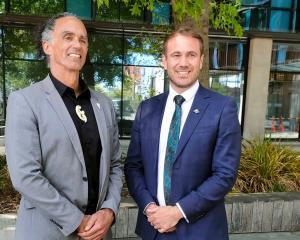
Grant Parrett told a meeting of the West Coast Tai o Poutini Conservation Board last week parking charges created a de facto entry fee to Paparoa National Park, which was unlawful.
Conservation Minister Tama Potaka has asked for a trial of paid parking to boost revenue.

Project manager John Dore told the board Doc had serious budget pressures including a 30% shortfall in funding for its visitor network and a huge deficit in the amount available for biodiversity.
"For protection of all endangered species we have a budget of $300 million — but a need of $2.3 billion."
Climate events in the last few years had added $90m in costs.
Paid parking was a tool used internationally in nature parks and would help manage overcrowding at busy sites, he told the board.
But Mr Parrett said the move would turn public conservation land into a Wilson-style parking lot, and urged the board to oppose it.
"However you label it, it’s a national park entry fee; it contravenes the National Parks Act and it diminishes Doc’s social licence to operate."
There were no free parks at Punakaiki because they had been removed to make room for the new visitor centre development and people would have no option but to pay to walk around the Pancake Rocks.

"Parking fees will disadvantage local people who call in for a coffee or to stretch their legs."
While Doc owned the land, taxpayers had funded the $45m Dolomite Point Visitor Centre development and the building was gifted by the last government to manawhenua, Ngati Waewae, who now leased office space back to Doc, Mr Parrett said.
"I am surprised that the iwi has supported the paid parking trial ... unless they stand to benefit from it."
Conservation Board Ngati Waewae representative Francois Tumahai objected.
"I disagree with everything you’ve said.
"The cost of the building was not $45m and we’re not getting a cent from the project.
"In the early days we suggested we might provide [parking] wardens — that’s it."
By Lois Williams











